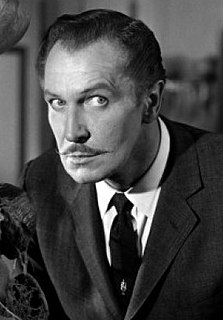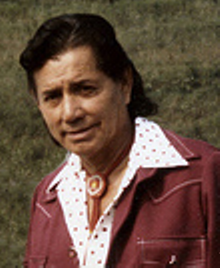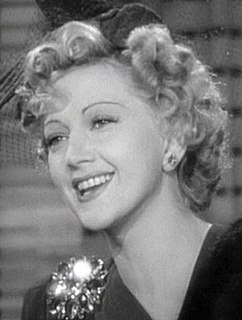Related Research Articles

Vincent Leonard Price Jr. was an American actor. He appeared on stage, television, and radio, and in more than 100 films. Price has two stars on the Hollywood Walk of Fame, one for motion pictures and one for television.

Jay Silverheels was an Indigenous Canadian actor and athlete. He was well known for his role as Tonto, the Native American companion of the Lone Ranger in the American Western television series The Lone Ranger.

Sacheen Cruz Littlefeather was an American actress, model, and Native American civil rights activist. Littlefeather was born to a Native American father and a White mother. During the 1969 occupation of Alcatraz, she became involved in the Native American activist community.

John Nicholas Cassavetes was a Greek-American actor, film director, and screenwriter. First known as a television and film actor, Cassavetes also helped pioneer American independent cinema, writing and directing movies financed partly by income from his acting work. AllMovie called him "an iconoclastic maverick", while The New Yorker suggested in 2013 that he "may be the most influential American director of the last half century."

Katharine Juliet Ross is an American film, stage, and television actress. Her accolades include one Academy Award nomination, one BAFTA Award, and two Golden Globe Awards. A native of Los Angeles, Ross spent most of her early life in the San Francisco Bay Area. After attending Santa Rosa Junior College for one year, Ross joined The Actors Workshop in San Francisco, and began appearing in theatrical productions.

Stella Adler was an American actress and acting teacher. She founded the Stella Adler Studio of Acting in New York City in 1949. Later in life she taught part time in Los Angeles, with the assistance of her protégée, actress Joanne Linville, who continued to teach Adler's technique. Her grandson Tom Oppenheim now runs the school in New York City, which has produced alumni such as Marlon Brando, Robert De Niro, Harvey Keitel, Elaine Stritch, Kate Mulgrew, Kipp Hamilton, Jenny Lumet, and Jeff Celentano.

Broken Arrow is a 1950 American Western film directed by Delmer Daves and starring James Stewart, Jeff Chandler and Debra Paget. The film is based on historical figures but fictionalizes their story in dramatized form. It was nominated for three Academy Awards, and won a Golden Globe Award for Best Film Promoting International Understanding. Film historians have said that the movie was one of the first major Westerns since the Second World War to portray the Indians sympathetically.

Viola Spolin was an American theatre academic, educator and acting coach. She is considered an important innovator in 20th century American theater for creating directorial techniques to help actors to be focused in the present moment and to find choices improvisationally, as if in real life. These acting exercises she later called Theater Games and formed the first body of work that enabled other directors and actors to create improvisational theater. Her book Improvisation for the Theater, which published these techniques, includes her philosophy and her teaching and coaching methods, and is considered the "bible of improvisational theater". Spolin's contributions were seminal to the improvisational theater movement in the U.S. She is considered to be the mother of Improvisational theater. Her work has influenced American theater, television and film by providing new tools and techniques that are now used by actors, directors and writers.

Deborah Walley was an American actress noted for playing the title role in Gidget Goes Hawaiian (1961) and appearing in several beach party films.

Robert Hooks is an American actor, producer, and activist. Along with Douglas Turner Ward and Gerald S. Krone, he founded The Negro Ensemble Company. The Negro Ensemble Company is credited with the launch of the careers of many major black artists of all disciplines, while creating a body of performance literature over the last thirty years, providing the backbone of African-American theatrical classics. Additionally, Hooks is the sole founder of two significant black theatre companies: the D.C. Black Repertory Company, and New York's Group Theatre Workshop.

The Pasadena Playhouse is a historic performing arts venue located 39 S. El Molino Avenue in Pasadena, California, United States. The 686-seat auditorium produces a variety of cultural and artistic events, professional shows, and community engagements each year.

East West Players is an Asian American theatre organization in Los Angeles, founded in 1965. As the nation's first professional Asian American theatre organization, East West Players continues to produce works and educational programs that give voice to the Asian Pacific American experience today.

The Lee Strasberg Theatre & Film Institute is an acting school founded in 1969 by actor, director, and acting teacher Lee Strasberg. The Institute is located in Union Square on East 15th Street, also known as Lee Strasberg Way, in New York, New York. The school has a secondary campus located in Los Angeles, California.

Horace Winfred "Nick" Stewart also billed as Nick O'Demus was an American television and film actor. Stewart was known for his role as Lightnin' on TV's The Amos 'n' Andy Show.
The Stella Adler Studio of Acting is a prestigious acting school that was founded by actress and teacher Stella Adler. The Stella Adler Studio of Acting has two locations: its original New York City conservatory, founded in 1949, and the Art of Acting Studio in Los Angeles. The Stella Adler Studio of Acting in New York is not affiliated with the Stella Adler Academy & Theatre, which Adler established in Los Angeles in 1985. The Stella Adler Studio and the Juilliard School currently boast the lowest program acceptance rates in the professional acting world. The studio only accepts sixteen students a semester into its professional conservatory program.
Shirley Cheechoo is a Canadian Cree actress, writer, producer, director, and visual artist, best known for her solo-voice or monodrama play Path With No Moccasins, as well as her work with De-Ba-Jeh-Mu-Jig theatre group. Her first break came in 1985 when she was cast on the CBC's first nations TV series Spirit Bay, and later, in 1997, she found a role on the CBC's TV series The Rez.
Lisa Janti, known as Lisa Montell when performing as a Hollywood actress of the 1950–60s, later shifted her career to one of advocacy and service to various disadvantaged groups and to her adopted religion, the Baháʼí Faith.
Hanay Geiogamah is a playwright, television and movie producer, and artistic director. He is currently a Professor in the School of Theater, Film, and Television at the University of California, Los Angeles. He also served as the director of the UCLA American Indian Studies Center from 2002 to 2009. Geiogamah was born in Oklahoma and is a Kiowa and Delaware Indian. He is a widely known Native American playwright and one of the few Native American producers of both television and film in Hollywood.
The Studio Watts Workshop was an arts organization founded in 1964 and based in the Watts neighborhood of Los Angeles, dedicated to providing working space for artists and offering a broad range of arts workshops for the local community.
The Indian Actors Association was formed around 1936 and was a non-profit Hollywood based organization. They formed after and were influenced by the War Paint Club, an organization meant to protect rights of Native American actors. Additionally, driven by the Hollywood practice of occasionally casting non-native actors as Indians in films, the Native actors working in Los Angeles at the time seized their opportunity to establish a pool of “authentic” Indian actors to work in film.
References
- 1 2 Blaine, John; Baker, Decia, eds. (1973). "Single Arts Experience Orientation". Community Arts of Los Angeles (Report). Los Angeles Community Art Alliance. p. 10. hdl:10139/2728. OCLC 912321031.
- ↑ Price, John A. (1978). Native studies: American and Canadian Indians . McGraw-Hill Ryerson. ISBN 9780070826953.
actors workshop.
- ↑ Price, John A. (1973). "The Stereotyping of North American Indians in Motion Pictures". Ethnohistory. 20 (2): 153–171. doi:10.2307/481668. JSTOR 481668.
- ↑ Colonnelli, Elaine (March 11, 1973). "Indians Seek To Revive Creativity". The Press-Courier. p. 7.
- ↑ "News". Together. XIII (7): 17. July 1969.
- ↑ Littlefield, Daniel F. Jr. (1986). American Indian and Alaska Native Newspapers and Periodicals: 1971-1985. Greenwood Publishing Group, Incorporated. ISBN 9780313248344.